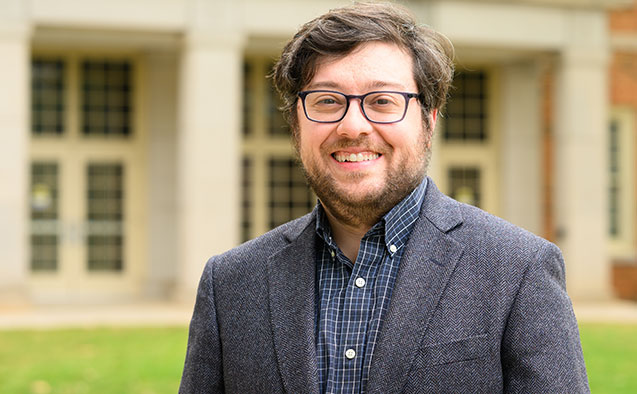The ‘switch cost’ of multitasking

Multitasking is the act of performing multiple tasks or activities simultaneously or near-simultaneously. However, studies in cognitive psychology suggest that true simultaneous multitasking is unlikely. Instead, our brains are switching between tasks rather than handling them concurrently. This rapid switching between tasks has a cost: cognitive efficiency diminishes as the brain needs time to refocus each time it switches.
Psychology professor Anthony Sali’s recent research uses a combination of studies of human behavior, eye tracking, human functional magnetic resonance imaging (fMRI) and electroencephalography (EEG), to look at how learning influences switching readiness, also known as cognitive flexibility.
Q: What happens when we try to juggle several tasks at once?
A: A critical component of human cognition is the ability to flexibly shift tasks or update the contents of working memory. An individual’s readiness to shift is known as cognitive flexibility. Our research shows the frontal and parietal lobes of the brain respond when an individual must unexpectedly switch or repeat tasks, indicating that these regions are implicated in the ongoing process of anticipating current task-switching demands and adjusting cognitive flexibility accordingly.
Some individuals become adept at switching between tasks, especially in specific situations, but there can be an associated cost. A ‘switch cost’ is the time the brain needs to disengage from one task and switch to another. Switch readiness increases when task-switching is more necessary and helpful, such as when caring for a toddler and cooking a meal or when navigating in an unfamiliar city. With activities that require focused attention, such as engaging in deep conversation or completing a challenging task, switch readiness decreases.
Q: What happens when the brain shifts?
A: Task-switching involves intricate control mechanisms within the brain that play a crucial role in our ability to regulate attention and make decisions about when to switch between tasks. Our brains anticipate the need to task-switch based on contextual cues or expectations and then weigh the potential rewards and costs associated with that task-switching.
Examples of particularly risky task switching can occur while driving when tending to a child passenger or checking a cell phone. Ideally, individuals are in a heightened state of readiness for switching to manage these tasks effectively and limit switching to only those tasks that are necessary.
Updating predictions based on past task-switching experiences helps individuals adapt to their environment and refine their strategies for managing attention. Over time, the brain learns to balance the benefits and costs of task switching to optimize cognitive flexibility and performance.
Q: Do people task-switch differently?
A: Individuals vary in their ability to task-switch. Genetics, age and experience are factors. In general, younger adults exhibit greater cognitive flexibility than older adults. However, preliminary evidence suggests older adults may be better attuned to, or at least more influenced by, situational changes in the probability of attention shifting. Interventions such as exercise, particularly high-intensity interval resistance training, have shown promise in improving cognitive function across age groups.
Q: Are there things people can do to increase their cognitive flexibility?
A: Our research would suggest that being more flexible all the time is not optimal. Attention-deficit/hyperactivity disorder (ADHD) can be thought of as persistent levels of high flexibility. Instead, our research has focused on how well individuals can regulate cognitive flexibility so that they can prepare for changing environmental demands.
Q: What is the next step in your research?
A: An area of ongoing research in our lab is whether trait anxiety may be associated with an impairment in the ability to adjust cognitive flexibility. Funding from the National Institute of Mental Health has allowed me to engage a team of undergraduate and master’s students in cutting-edge cognitive neuroscience research. The students are collecting and analyzing data – gaining experience that is often reserved for doctoral students. An overall goal of our work is to understand the mechanisms related to moment-by-moment fluctuations in cognitive flexibility in the healthy brain and how these mechanisms may be altered in individuals with high-trait anxiety.
Contact media@wfu.edu with interview requests.
Categories: Top Stories
Wake Forest News
336.758.5237
media@wfu.edu
Meet the News Team
Headlines
Wake Forest in the News
Wake Forest regularly appears in media outlets around the world.




